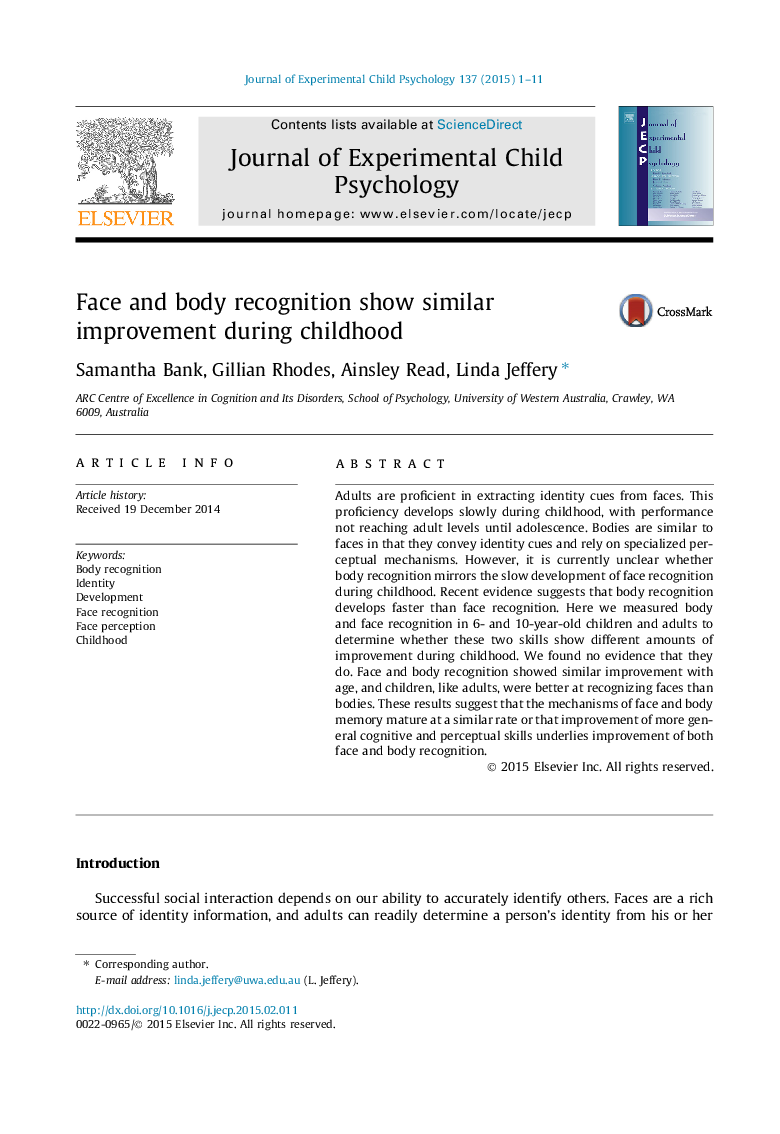| Article ID | Journal | Published Year | Pages | File Type |
|---|---|---|---|---|
| 7274995 | Journal of Experimental Child Psychology | 2015 | 11 Pages |
Abstract
Adults are proficient in extracting identity cues from faces. This proficiency develops slowly during childhood, with performance not reaching adult levels until adolescence. Bodies are similar to faces in that they convey identity cues and rely on specialized perceptual mechanisms. However, it is currently unclear whether body recognition mirrors the slow development of face recognition during childhood. Recent evidence suggests that body recognition develops faster than face recognition. Here we measured body and face recognition in 6- and 10-year-old children and adults to determine whether these two skills show different amounts of improvement during childhood. We found no evidence that they do. Face and body recognition showed similar improvement with age, and children, like adults, were better at recognizing faces than bodies. These results suggest that the mechanisms of face and body memory mature at a similar rate or that improvement of more general cognitive and perceptual skills underlies improvement of both face and body recognition.
Related Topics
Social Sciences and Humanities
Psychology
Developmental and Educational Psychology
Authors
Samantha Bank, Gillian Rhodes, Ainsley Read, Linda Jeffery,
